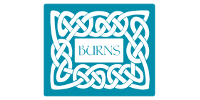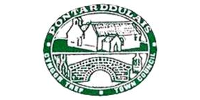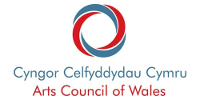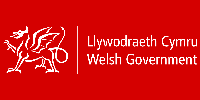Parades… and Temperance!
During the period from 1885-1893, under the leadership of Mr Morris the Pontardulais Band took part in, and often led, numerous local parades in areas including Pontardulais, Gowerton, Llanelli and Brynnaman. They also turned out for local church and tin-plate trade Demonstrations, Benefit Concerts and competed in the Ammanford Eisteddfod of 1889. The South Wales Daily News reported in October 1893 that the band, alongside various artistes, took part in a concert at the Public Hall, Pontardulais in aid of the Hermon Chapel building fund. The article notes “the programme was an excellent one and admirably carried out and the concert was, as usual, a success in every way”. Herman Chapel was duly completed and opened in 1894/95. It still stands in the centre of Pontardulais today.
During 1885-1893 Pontardulais Band were referred to for much of the time as the ‘Pontardulais Rechabite Band’. The Independent Order of the Rechabites was founded in 1835 and was the first temperance friendly society. “Temperance with thrift” was their objective and each member would sign a personal pledge of total abstinence from alcoholic liquor. As a band that enjoys a celebratory tipple now and again what would Mr Morris make of the current Pontardulais Town Band?!
There are no reports of a Band in Pontardulais between 1894 and 1896. What happened we don’t know, but certainly it seems there was a break in proceedings. Meanwhile, there are newspaper references to the existence of many local brass bands around this time, but perhaps the most famous (and most successful) was the Morriston Brass Band. A report in the South Wales Daily Post of 13th August 1895 proclaims: “The Morriston Brass Band is rehearsing in earnest for the forthcoming great contest at Belle Vue, Manchester, on September 2nd next. This band has already taken 4th prize at the champion contest at Belle Vue, beating the renowned Black Dyke band; and now it is in a higher state of efficiency than ever. Morriston people have high hopes that their band will do something on September 2nd of which Wales will be proud’. Wow – the day Morriston beat the famous Black Dyke!
Did Morriston do it again? The following is a report from The South Wales Daily Post, 4th September 1895, which included an interview with Mr Hanney, the Conductor of Morriston Brass Band in the days following the competition in full.
MORRISTON BAND AT MANCHESTER. THE GREAT CONTEST. MR. G. HANNEY INTERVIEWED. After his midnight journey from Manchester, Mr Hanney, the bandmaster of the Morriston Band, was not in good condition yesterday morning for being cross-examined. In the course of conversation, however, one of our representatives was able to get from him some further particulars of the contest at Belle Vue. Mr. Hanney started by saying that he and all the members of the band were thoroughly satisfied with their performance, and full of hope for the future.
“You see, there were 17 bands competing, all of them of a very high standard, and the playing of the first bands was simply astounding. One would scarcely have thought it possible for a brass band to play as Black Dyke did on Monday. It was magnificent. Then again, look at our instruments. With some of them the best player in the world would fail to produce a true tone. One instrument has actually got the rim loose from the bell, and in others the brass is so soft that you can bend it with your hands”
“And I suppose the prize bands had the best instruments, Mr Hanney?”
“Everyone of them played on the very finest instruments. Then again we were handicapped in this way: that we did not arrive at Belle Vue until 11 o’clock in the morning. Our men, of course, were very tired, and we were unfortunate enough in drawing lots to be placed as the second band to play. This gave our fellows no time to pull themselves together.”
“Have you any idea how many points you made, or in what order of merit you ranked?”
“Well, as far as I could judge and from what other musicians told me, I should think we followed close on the heels of Kingstown Mills, the 7th band; in fact most people thought we were well in the running for a prize of some sort.”
“Will you ever compete at Belle Vue again?”
“Certainly if we get new instuments.”
Meanwhile, back in Pontardulais, plans have been made and a new band returns, late in 1897. There’s a new conductor at the helm too, a certain Mr R. L. Davies. It sounded as if the band meant business as they appointed a secretary, Mr P. W. James and a treasurer, Mr D. E. Phillips. The first outing for Mr Davies’ reformed band came on Christmas Morning of 1897 when the band played at church services at St. Teilo’s and St. Davids, “both of which edifices had been chastely and tastefully decorated for the occasion by a band of enthusiastic ladies attached to the respective congregations”. The weather was reported as “ideal Christmas weather” – what that means is anyone’s guess – perhaps Pontardulais was white with snow – who knows? Incidentally, a Mr D. Morris (the first conductor of Pontardulais Band) turns up again at this point, in Goppa Chapel on Christmas night, this time as the leader of the Calfaria choir. Perhaps Mr Morris decided he preferred the company of a well behaved choir rather than a rowdy brass band of tin-plate workers?
Although Mr Robert Leyshon Davies A.C. of Glynllwchwr Road Pontardulais did not remain as sole conductor of the band, he was to be involved with the band for many years. Mr Davies enjoyed a distinguished career in local musical and eisteddfodic circles. He was organist of Hope Congregational Church when only 12 years of age and was presented with a gold watch by that church on leaving for college. At Bangor he acted as organist at Pendref Congregational Church and acted in a similar capacity at St Teilo’s Welsh Church and at St Michael’s and All Angels’ Church, Pontardulais, and later appointed organist of Goppa Chapel. An all round accomplished musician, he was also conductor of Pontardulais Operatic Society and accompanist of the Pontardulais Male Voice Party. He was a schoolmaster in Pontardulais and went on to become the Headmaster of Kingsbridge Council Schools. It seems Pontardulais owes a debt of gratitude to Mr Davies as for every musical event in the village be it Church Service, Concert, Funeral or Wedding you could bet your bottom dollar “Mr R L Davies presided at the organ”.







